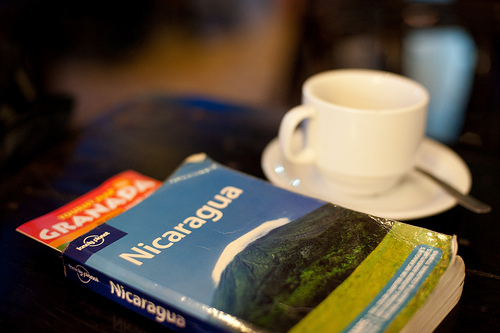 Adopting from Nicaragua, the largest country in Central America, has become a viable alternative to adopting from Guatemala which closed to international adoptions in 2008. Nicaragua, like the Eastern European country of Ukraine, has a long tradition of independent international adoptions.
Adopting from Nicaragua, the largest country in Central America, has become a viable alternative to adopting from Guatemala which closed to international adoptions in 2008. Nicaragua, like the Eastern European country of Ukraine, has a long tradition of independent international adoptions.
Parents considering this path to building their families need to be aware of new legislation taking effect this July. The Universal Accreditation Act of 2012 (UAA) will have a huge impact on international adoption when it takes effect in July of this year. UAA will require that an adoption service provider (international adoption agency) must have Hague Accreditation/Approval to provide international adoption services to prospective adoptive parents. This change will improve ethical practices in adoption and improve the adoption process as a whole. However, in the interim, it may cause delays and issues for families that have started independent international adoptions already or will start them in the near future.
Families considering independent international adoption need to weigh the potential lower cost of completing an independent adoption against the increased risks that UAA brings to an independent adoption. At this point, we do not know exactly how UAA will be implemented or interpreted in any given case. However, the US State Department has offered some guidance that appears to be particularly on point on the issue of whether independent international adoptions are allowed.
“Q: Can I complete the intercountry adoption process doing an independent adoption* in which I do the adoption work myself without the help of an accredited or approved provider?
No. An accredited or approved primary provider is required in every intercountry adoption case, unless a public domestic authority is providing all of the adoption services. The primary provider is responsible for ensuring that all six adoption services are provided in accordance with the Convention and applicable laws and regulations.”
Parents seeking to complete an independent international adoption may wish to connect with a Hague Accredited or Approved ASP for the limited services of completing a home study and post-adoption services. Although, we do not yet know how the laws will be applied, one possible (and in my opinion, likely) interpretation is that the Hague ASP who agrees to provide the home study services runs the risk of being held responsible for the entire adoption. This responsibility could even extend to the supervision of parents’ in-country attorney. Many ASP’s will be reluctant to take on this increased liability.
If the parents working on an “independent adoption” use a Hague ASP to complete the home study, issues may come into play when a family needs to update their home study or needs an entirely new home study due to the length of time the adoption takes. The ASP may decide they cannot continue to provide these limited adoption services. Depending on where you are in the process this could have significant repercussions, specifically there is a risk that fees already paid to the foreign attorney would be lost. As a primary provider, the ASP taking on your case in the middle of process will either need to turn the in-country attorney into a supervised provider (which would require a large investment in interviewing, approving, training, monitoring and overseeing that individual) or require that you work with another foreign attorney that is already supervised by the agency. Both results would cause delays, additional expenses and may put your adoption in jeopardy. These are significant risks that must be weighed against the potential cost savings of adopting independently. Should you run into one of the issues mentioned above in working towards an independent international adoption, it may well cost much more to fix the issues and start again with a Hague ASP, than it would have to state with a Hague agency in the first place.
Adopting from Nicaragua is a great option for families seeking to adopt internationally, especially if you have a flexible work schedule that allows for the long in-country stay. The need is great in Nicaragua with very young children all the way up to teens who are in need of families. MLJ Adoptions has a successful international adoption program in Nicaragua. In 2013, we successfully placed nine children ranging in age from nine months to seven years.
*This material was prepared and intended for general information purposes only and does not constitute legal advice.Photo Credit: Dennis Tang For more information about MLJ Adoptions’ Nicaragua adoption program, please click here.
Nicole Skellenger works as MLJ Adoptions’ Chief Executive Officer and Adoption Attorney. Nicole has spent time in orphanages with children who have nothing and are desperate for affection and has committed herself to using her skills to create better futures for these deserving children.
 Adopting from Nicaragua, the largest country in Central America, has become a viable alternative to adopting from Guatemala which closed to international adoptions in 2008. Nicaragua, like the Eastern European country of Ukraine, has a long tradition of independent international adoptions.
Adopting from Nicaragua, the largest country in Central America, has become a viable alternative to adopting from Guatemala which closed to international adoptions in 2008. Nicaragua, like the Eastern European country of Ukraine, has a long tradition of independent international adoptions.